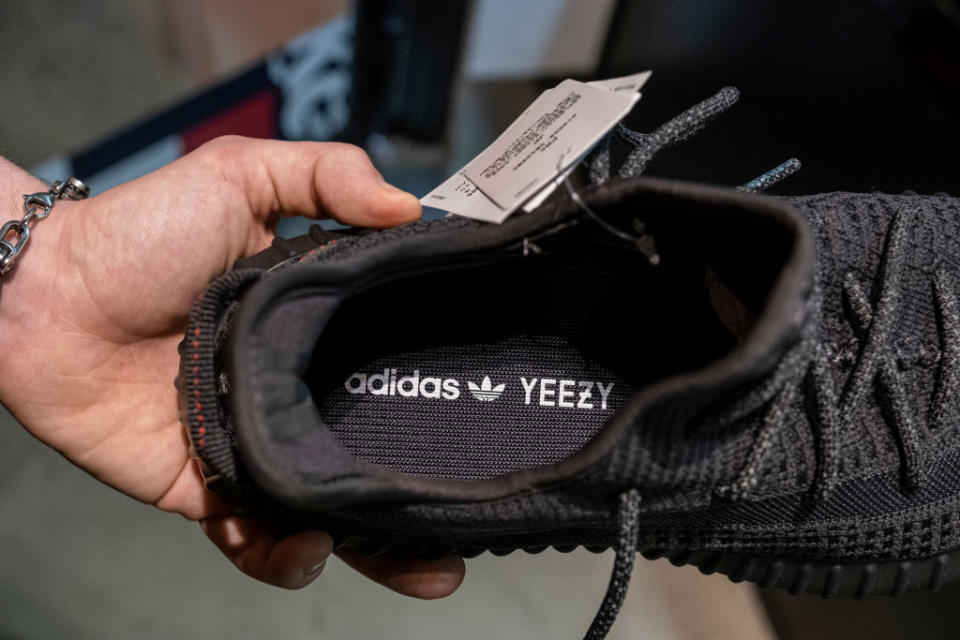Surprising product most likely to be a scam

Australians have already lost $4 million to shopping scams this year, significantly more than the $3.28 million lost in the entirety of 2018.
The items most commonly reported as scam-bait are smartphones, tickets to events and – surprisingly - shoes.
Between 1 January and 31 October 2019, Scamwatch received a massive 437 online shopping scam reports mentioning ‘shoes’, with reported losses totalling more than $89,000.
“Scammers pretend to sell a wide variety of brands, often theming their online store to specialise in a brand,” an Australian Competition and Consumer Competition spokesperson told Yahoo Finance.
“Specific brands scammers pretend to sell reportedly include Nike, Skechers, Keen footwear, Vans, Adidas, Dr Martens and Yeezys.”
And the scammers often get away with it by sending the victim a valid tracking number attached to a cheap item like a plastic ring or pair of sunglasses in lieu of the product.
This way, the victim doesn’t realise they’ve been scammed until the delivery is sent, meaning its significantly harder to recover funds.
As recently as July this year, Australian shoppers have complained of R.M. Williams boots scams on forums, noting that offers of 80 per cent off for the expensive shoes are too good to be true.
And in 2018, five people were charged for being part of a US$73 million fake shoe scam, which saw the crew allegedly import nearly 500,000 pairs of fake Air Jordans sneakers.
‘Tis the season for online shopping scams
Scamwatch issued the alert on Monday morning as online scam season begins.
“Scammers often try to take advantage of people doing their Christmas shopping including in the upcoming Black Friday and Cyber Monday sales,” ACCC Deputy Chair Delia Rickard said.
“Reported losses have tripled over the last three years and it is concerning that losses from this year are already so high.”
She said shoppers need to be cautious of fake websites and stores, which can often look like genuine retailers.

Many of these sites will offer ‘luxury products’ at cheap prices, but deliver little to nothing.
Scammers may also pretend to be genuine sellers on classifieds websites, and claim that an agent will deliver the goods upon payment. However, victims will generally be unable to contact the ‘seller’ once the scam is exposed.
Online shopping scam warning signs
So how do you spot the fakes from the real deal?
If the deal looks too good to be true, it just might be, and if you’re asked to pay through Bitcoin, you should be suspicious.
“Warning signs for online shopping scams include extremely low advertised prices and requests to pay through direct bank transfer or cryptocurrency,” Rickard said.
“We encourage everyone to do their research before making an online purchase and if purchasing expensive goods, not to make payment until they have inspected the product.”
If the party demands you pay immediately payment this is also a concern, and any retailer that doesn’t provide enough information about privacy, terms and conditions of use, refund policies and contact details should also be avoided.
Another good rule of thumb is to check the website for typos, as this can indicate a scam. It’s also safest to shop at websites with URLs that begin with a ‘https’ or a closed padlock symbol, as this indicates the website has a secure connection.
Make your money work with Yahoo Finance’s daily newsletter. Sign up here and stay on top of the latest money, news and tech news.

 Yahoo Finance
Yahoo Finance 
